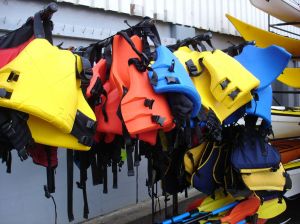Labor Day weekend is a popular time to head out to Florida’s many waterways. Whether you are heading out to the rivers of Southern Florida or the beaches of Miami, boating accidents and other water-related accidents remain a concern. According to the Coast Guard and other authorities, holiday weekends tend to have higher rates of water-related injury, and Labor Day is a weekend that usually involves many of these types of injuries. The Coast Guard and other authorities have a number of tips to keep you safer around the water:
1) Never head near the water after drinking.
When you’re out on the water, you already have to deal with the sun, the glare off the water, and the Florida heat. When you add alcohol or drugs to the mix, you have the potential for a truly dangerous situation, especially since alcohol and drugs can exacerbate the effects of the sun. Alcohol and drugs can also affect your mobility and your ability to think clearly, which can result in drowning and other water-related tragedies. Boating under the influence is also illegal and can result in criminal charges.
2) Wear a life jacket.
Each person on board a boat should have a Coast Guard approved life vest. In the event of a boating accident, these vests can help keep you above the water, even if you hit your head or lose consciousness. Life jackets also make you more visible if you do go overboard, increasing the chances that emergency responders can find you.
3) Head to the water with proper supervision.
Whether you are swimming or boating, have a designated lookout to check for any signs of trouble – such as boats, bad weather, and other hazards. Never swim or boat alone. If you run into problems or dangers, having someone else around can save your life. Another person can keep an eye out for bad weather and other problems. If you run into difficulties, another person can call for help or can get you to safety.
4) Have a charged cell phone or carry a VHF-FM marine radio when boating.
You will want to be able to call for emergency help or for the Coast Guard if you run into problems. Being able to contact help does not replace the need for proper supervision, but is still important – especially if you will be boating, swimming, or fishing in a remote area.
5) Use extra caution when heading to the water with children.
Children, even if they know how to swim, can face additional danger in the water. They may be more vulnerable to bad conditions or may wander away and into the water unsupervised. When boating, fishing, or swimming with children, it is a good idea to have an extra adult around for supervision.
6) Don’t overestimate your swimming skills.
Many people feel that boat or pool accidents in Miami and Florida won’t affect them because they are strong swimmers. However, even strong swimmers can suddenly get a cramp, get dizzy, or find themselves carried away by a current. While improving your swimming can improve your chances of surviving in the water, keep your skill limits in mind and continue to exercise caution when boating or swimming.
If you or a loved one has been injured at a pool, beach, or on a boat, contact Flaxman Law Group for legal advice and representation. Your initial consultation with our law firm comes with no obligation and no cost.
 Florida Injury Lawyer Blog
Florida Injury Lawyer Blog


